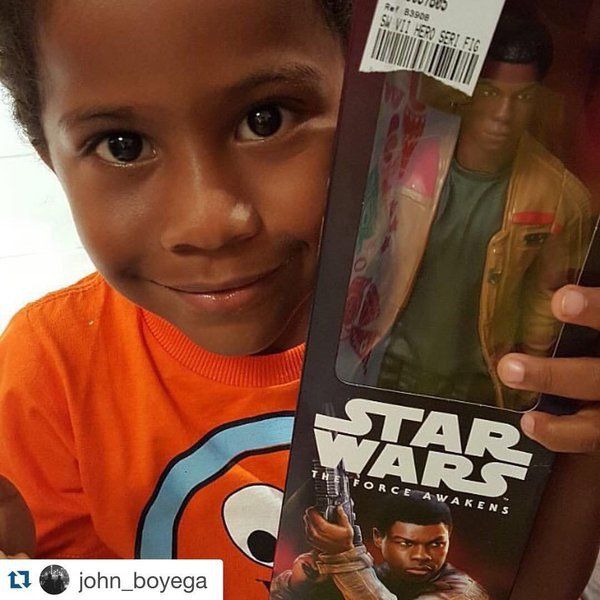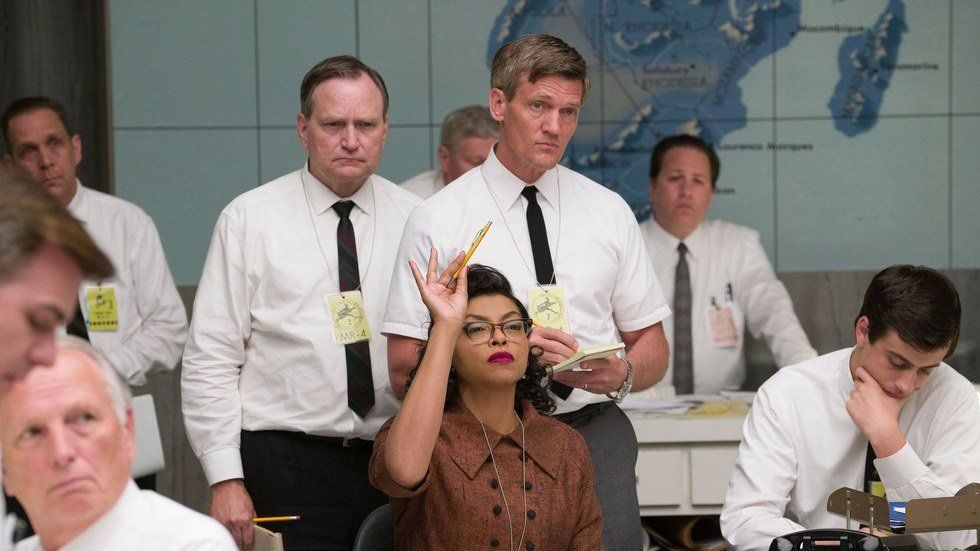Hidden Figures is the best film I have seen in a very long time. It is relevant, powerful, poignant, and probably most of all, a kind of call to action. Although Hidden Figures did not win a single category in the Golden Globes, it is clear to me this movie will have a lasting impact in our society and will leave audiences thinking about how to make a better world.
Here is why Hidden Figures is the best movie of the year:
It is timely.
In a country as divisive as ours currently is, a film depicting segregation, and the triumph of oppressed peoples is relevant more than ever. People tend to believe segregation and the Civil Rights Movement is so far removed from our current society that we do not really need to talk about it or discuss it. "It happened so long ago! Get over it!"
But many of the ideologies supporting "separate but equal" still remain ingrained peoples' minds. We cannot ignore what has happened in the past. We must acknowledge it happened in order to prevent it from happening again in the future. And with the rise of the Alt-Right (Nazis), it is obvious people have not learned from the past. People with power and privilege do not recognize the importance of diversity and the importance of elevating oppressed peoples to a place of true equality. This film could not have come at a better time.
It is based on true stories and real people.
The film focuses on three real women of color: Katherine Johnson, Dorothy Vaughan, and Mary Jackson. Each woman played an integral part in NASA's efforts during the Cold War Space Race:
Katherine Johnson, a human "Computer", completed calculations with more precision than the technology available at NASA, and John Glenn--the first American to orbit the Earth--refused to go into orbit without her double-checking the math. In 2015, she was awarded the Presidential Medal of Freedom by President Obama for her essential contributions.
Dorothy Vaughan was the first black supervisor at NACA (the segregated part of NASA consisting only of people of color), and eventually joined a new racial and gender-integrated group focused on FORTRAN programming of IBMs.
Mary Jackson was NASA's first black female engineer, and possibly the only one in the entire aeronautic field at the time. In order to get the position, however, she had to petition to attend engineering classes at a segregated school.
There is no white savior.
In many movies about oppression, the main character is white (and typically fairly wealthy). That character decides to take pity on oppressed people and fight for their cause despite it being mostly irrelevant to their own life. While this narrative was certainly realistic on some occasions, there is a distinct lack of narratives focusing on the groups of people who fought and risked their lives to raise themselves out of oppression.
As Mary Jackson's husband said in the film, "Civil Rights ain't always civil."
Segregation was not abolished by a rich white man who swooped in to "save the poor Negroes." Segregation was forced to end by people of color. Martin Luther King Jr., who is quoted in the film with real footage from the time, was just one of thousands of people who stood up and fought against oppression.
The film depicts integration within NASA. The director desegregates the bathrooms, and NACA is absorbed into NASA; yes, the director was a white man, but it is very clear who prompted these decisions: Katherine Johnson, who worked closely with him in order to get Americans into space.
The three real women of color are the definitive heroes of this film--as they should be.
It realistically depicts segregation.
Segregation is not shoved under the rug. It is blatantly depicted in nearly every possible way it could have been. Some of the footage used to display segregation is real, but even the footage specifically taped for the movie was based purely on true instances.
Johnson is shown running half a mile to another building in order to use a Colored Ladies Room. She is unable to drink from the same coffee pot as the other individuals in her department--all of whom are white. Vaughan is unable to get a supervisor position until the end of the film because NASA "could not afford" to pay a Colored Computer to do the job. Jackson has to go to court in order to attend engineering classes at a segregated school. They are forced to ride in the back of buses, and they cannot check out books from the white section of the library. There are segregated water fountains, clearly labeled "White" and "Colored." They have a tense conversation with a police officer, who only accepts them as innocent after they explain their jobs at NASA helping the "true American heroes."
Romance is not the central plot.
Although all three main characters are married (or get married during the film), romance is not the central plot. The film centers specifically on the work done by Johnson, Vaughan and Jackson to get John Glenn into orbit around Earth. But at the same time, romance was not neglected as a whole. Instead, the screenwriting included romances and relationships with people outside of NASA in order to strengthen and develop the characters. Without such important outside development, it would have been easy to see each of the three women as caricatures or stereotypes. They would have been one-dimensional.
I left the theatre breathless after watching Hidden Figures. Such a powerful narrative could not have come at a better time in our political and social climates. While other films have more glitz and glam, as well as more famous actors, Hidden Figures has unrelenting truth and endless inspiration for those who must overcome immense adversity in order to succeed.























